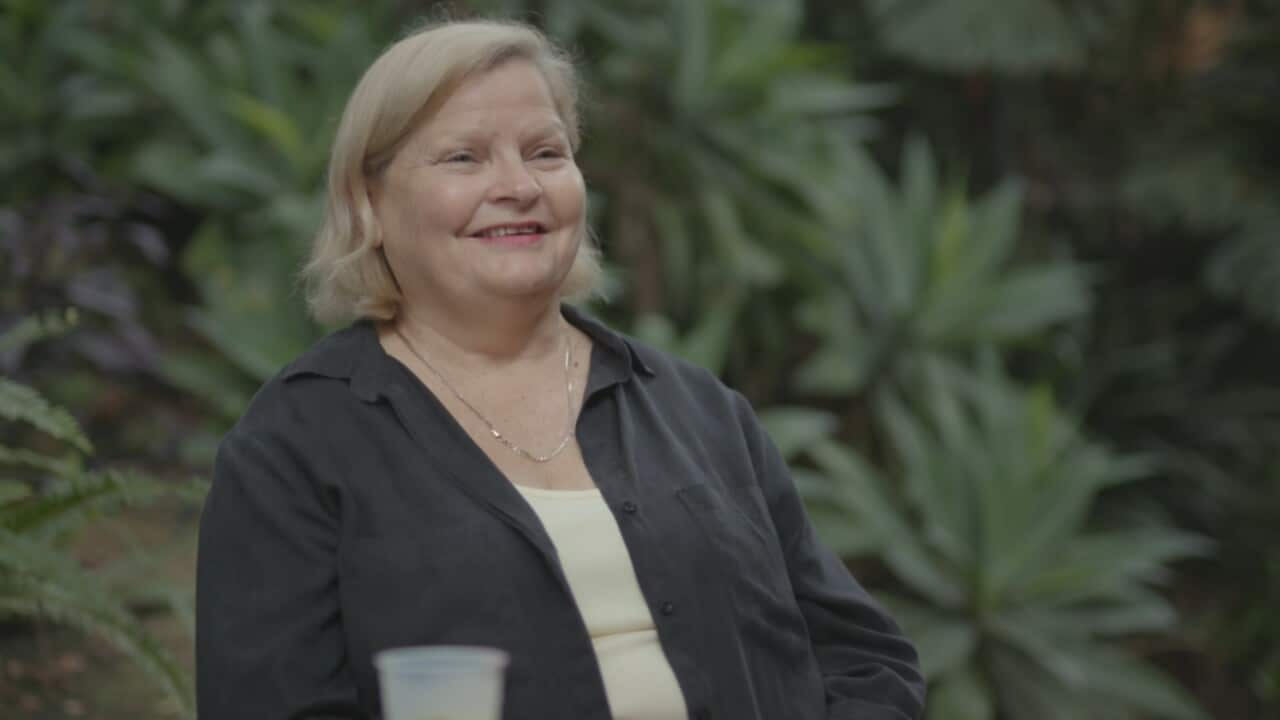A lot has changed since Rhonda Wainwright first signed up to become a nurse.
Her career began at St George hospital in 1973, when the uniform consisted of a red cape and white sailor’s hat.
“I had a wonderful three years training at St George hospital, and they just whip you up into a whirlwind of lots of friends, lots of parties, lots of hard work and lots of shift work,” Ms Wainwright told The Feed.
She has since worked in emergency wards, as a midwife and with Australia’s Air Ambulance.
“I really enjoyed emergency work because you had to deal with whatever wheels through the door, and that’s really exciting. When I first started in the ER I was so nervous I had diarrhoea for a week!”
Rhonda retired in 2018, and used her spare time to volunteer for the SES and at community events.
She’s now one of thousands of nurses waiting in the wings, should Australia's cases of coronavirus surge.
“I’m sure there’s a role for retired nurses. Maybe not the frontline, but manning telephones or contact tracing or supporting the frontline workers,” Ms Wainwright said.
“There are so many jobs that we could do to free up those guys.”
The Australian Government last week issued a call to arms, with more than 40,000 retired healthcare workers told they may be required to bolster the current workforce in the coming weeks.
Recently-retired nurses, doctors, paramedics and pharmacists - who have let their registration lapse within the last three years - may be eligible to return to work.
Australian Nursing and Midwifery Federation Federal Secretary Annie Butler said Australia’s health system is going to need “everybody we can possibly get.”
“We don’t want to see the scenes that we’ve seen, particularly in Italy and Spain, where people are working 14 hour shifts, they’re sleeping at the hospital, they’re not getting any breaks,” Ms Butler said.
She says the response from retired nurses has been overwhelming.
“Nobody’s being forced, this is entirely voluntary, but thousands and thousands already have put up their hand to volunteer.”
Refresher course
The Government has also joined with the Australian College of Nursing to provide a free refresher course for nurses that no longer work in a hospital setting.
Australian College of Nursing CEO Kylie Ward says it’s imperative Australia prepares for an increased healthcare workload.
“With the anticipated increase in demand in ventilators, in hospitals, in caring for people in the community at home, it is essential that we get the workforce of nurses that is required.”
Port Macquarie nurse Katherine Henderson has spent the past decade working in a private general practice.
She’s one of a thousand registered nurses doing the refresher course as she prepares to return to the coalface.
“If the need arises I would rather be someone on the frontline helping than someone who’s inside hiding from it,” Ms Henderson told The Feed.
“As a nurse, the desire to be there to help and to help soothe people is stronger than any worry about any danger to myself and I think you’d find that with most healthcare workers.”
Ms Henderson is encouraging other experienced nurses to join her in the fight against Covid-19.
“If you have the skills, and the talent and something in you that wants to help people, this is the time to say ‘yes, I can do this, and I can do my little part’.”
People in Australia must stay at least 1.5 metres away from others and gatherings are limited to two people unless you are with your family or household.
If you believe you may have contracted the virus, call your doctor (don’t visit) or contact the national Coronavirus Health Information Hotline on 1800 020 080.
If you are struggling to breathe or experiencing a medical emergency, call 000. SBS is committed to informing Australia’s diverse communities about the latest COVID-19 developments.
News and information is available in 63 languages at sbs.com.au/coronavirus.
Through award winning storytelling, The Feed continues to break new ground with its compelling mix of current affairs, comedy, profiles and investigations. See Different. Know Better. Laugh Harder. Read more about The Feed
Have a story or comment? Contact Us


